What are the competitive advantages of the Nordic companies in the global markets? Why they can be considered as hidden champions in their own market sector? These were the key questions to which we were seeking answers during our international spring school of Hidden Business Champions.
Study Programme: lectures, workshops and visits
During spring 2023 Karelia University of Applied sciences arranged the Blended Intensive Programme, BIP, with the partner universities of Artewelde UAS from Belgium and UAS Upper Austria. BIP consists of an online part and an intensive study week during which the students from the partner universities work together in multicultural teams in one location. The BIPs are funded by Erasmus+ mobility, and they offer a great opportunity for students to experience European diversity in respect to business environment and culture. Our BIP was called “Hidden Business Champions”, in which the key idea was to explore the Nordic business environment and to create a workable business idea for this market area.
During the intensive week of Hidden Business Champions at Karelia UAS in May 2023, the students had lectures and workshops hosted by universities’ experienced professors and visiting lecturers. The lectures worked as lead-ins to the topics and covered areas of Nordic Business Environment and future opportunities by Varpumaria Jeskanen, Design Thinking by Greet Van Quickelberghe, Challenges in international supply chains by Gerald Schönwetter, Lean thinking by Jarno Mertanen, Circular economy by Tommi Kukkonen, and Biodiversity and environmental responsibility in the Nordic region by Vilma Lehtovaara. After the lectures and workshops, the group visited some of the local champions, the companies, to see how they execute these in practice and what they value in their business sectors.
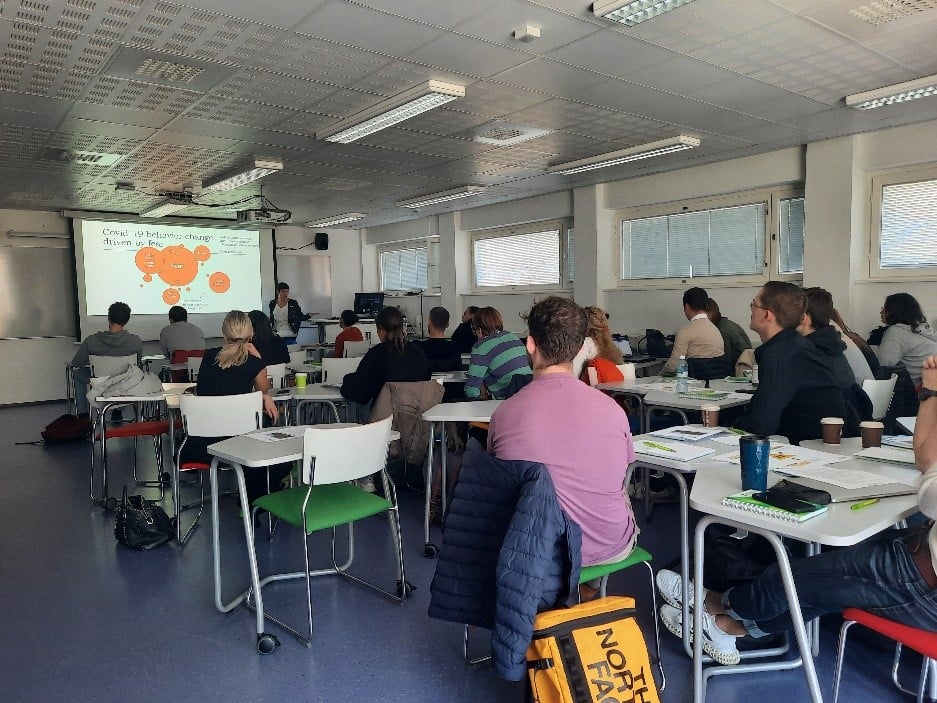
As their group project the students applied design thinking to create sustainable business models that would work in the Nordic markets. This working method offered an opportunity for students to first gain insights of Nordic business and learn from the case examples, and then apply that in practice by working in intercultural teams. On the last day of the week, the students pitched their business ideas for the whole group, and we had insightful discussions about how feasible and profitable they could be.
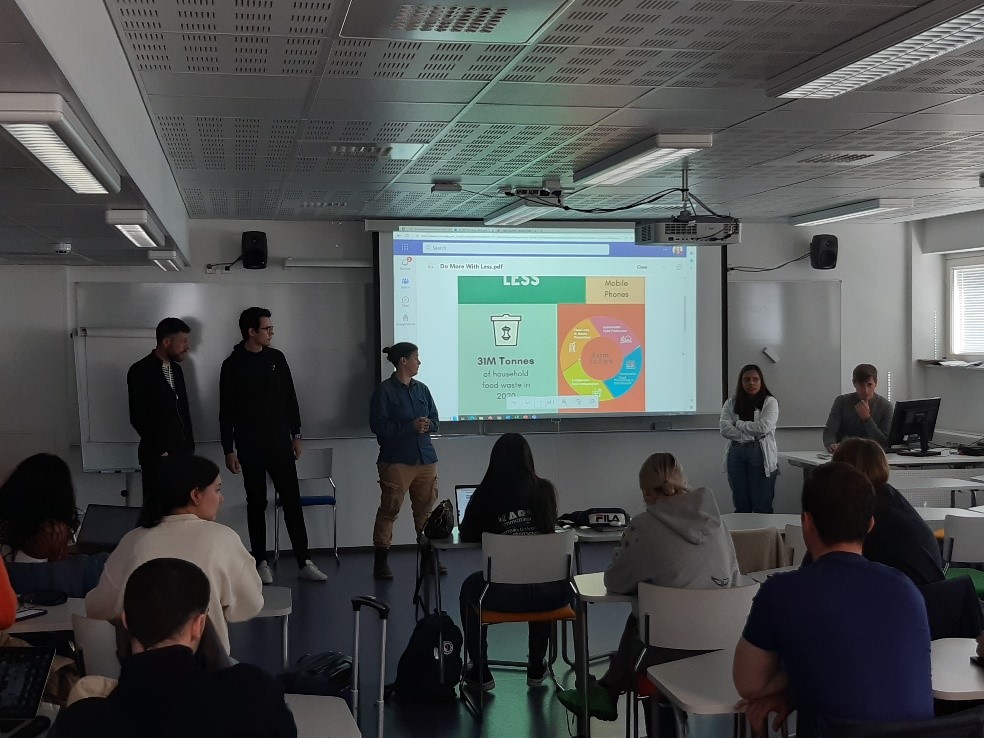
At the end of the week, we discussed the key takeaways from the intensive week. We came to the conclusion that some of the valuable cornerstones to succeed in the Nordic markets are sustainability and product lifecycle design, innovativeness, good co-operation between partners to improve efficiency and customer value as well as quality. Quality actually ties together all of the mentioned elements, because quality of the products and services is indeed created by sustainable, continuous development that is done together. Due to this we introduce next our working approach to Lean thinking workshop that was showing the students in practice how to apply Lean in supply chains and processes to improve efficiency in operations to reach better profitability, higher customer value and of course, improved quality.
Lean thinking in practice
Students learned Lean thinking basics via a really practical way by making paper boats in FlowBoat game. During the game students got a clear vision about the main idea of Lean thinking and had to apply different improvement ideas to test their outcome in practice.
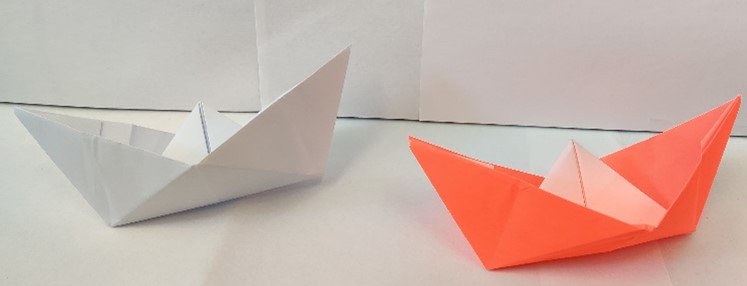
There were three game cycles during the game. On the first cycle there was a batch size of three and a poorly planned layout system in use. On the second cycle there was one piece flow and visual management system in use that are lean tools. On the third cycle the balancing between the operation stations were done and this was also a lean tool to implement in the work flow.
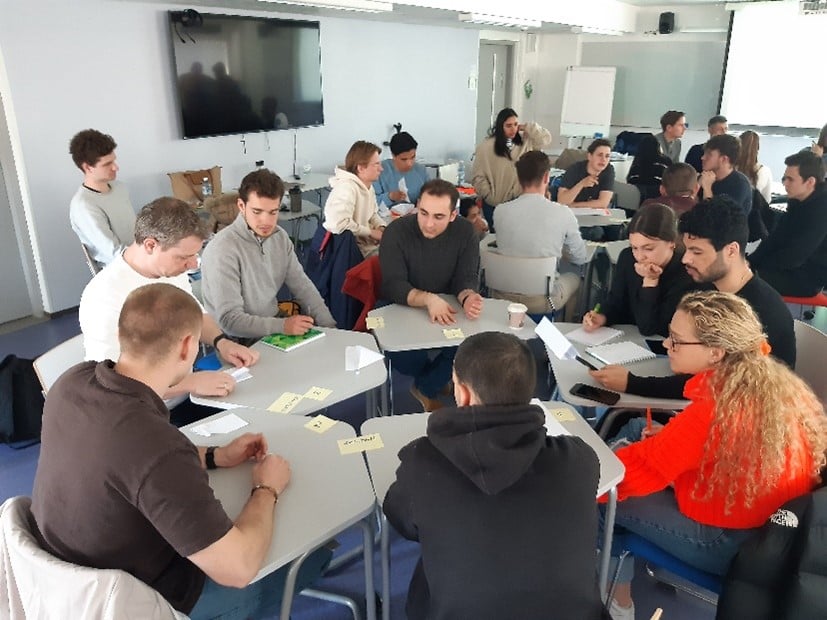
During the game manufacturing effects, financial results and improvements were measured with appropriate metrics, collected and analysed in a visual form. There were discovered visible, clear improvements between the game cycles.
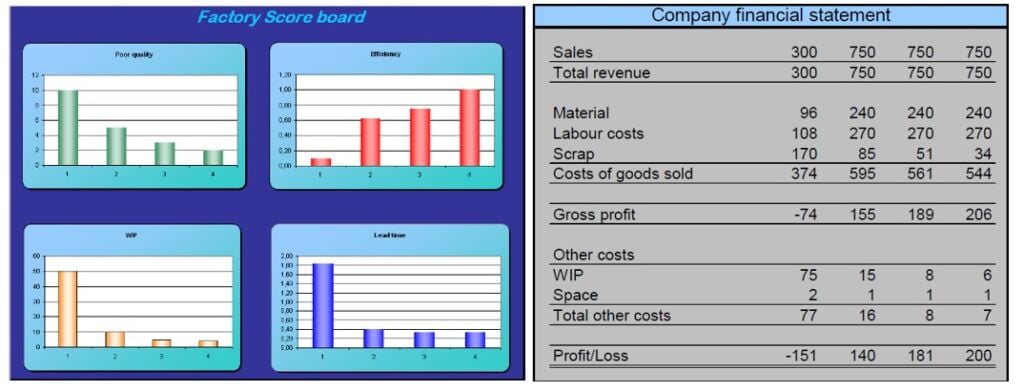
Company visits
Intensive week included company visits to Tulikivi, John Deere, Arbonaut and Kelluu. We invited different companies from the different business sectors to join the spring school since we aimed at introducing different approaches and business models in the Nordic markets. All of these companies were also different in their operations (two being manufacturing companies, two working with data analysis and management).
Three of these companies were connected to the forestry industry, which is very important sector in North Carelia region. From the area of North Carelia 89 % is covered by forest (Metsäkeskus 2023, 9). Since Joensuu is a leader in forest bioeconomy globally, the region has top expertise in the sustainable use of forests. We have over 500 companies working in this sector and special competence areas include new technologies, digitalisation of forestry, renewable energy and circular economy, collection of forest information and management of forest resources (Business Joensuu 2023).
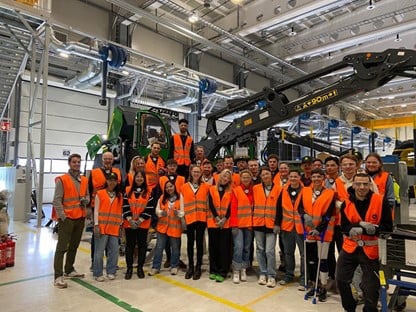
During the presentation and discussions with Arbonaut and Kelluu we were able to see the how these new innovations for digitalising the forest management and use of data in decision making were actually designed, built and brought to the markets.
Tulikivi factory visit gave us an insight into quality and how important it really is when making long-lasting, beautifully designed products that fulfil customer requirements both technically and visually. At John Deere we were able to see how Lean was implemented in the processes and how the real-time monitoring against targets helped the production team to control and improve the production flow. It was incredible how quickly the production lines were able to produce forestry machines with the top quality.
Company visits were really fascinating for the participants and during the visits there was a lot of interesting information and things to see. The students enjoyed the visits and considered them really eye-opening for understanding the Nordic way.
Activities around Joensuu and Koli
Intensive week included also some activities. On Monday evening we started to explore Joensuu with a Scavenger Hunt game. The students were divided into their groups in which they worked also during the week. We gave them some group tasks that they needed to complete around the city. This way they had a chance to see a bit of Joensuu and also get to know each other better before they started to work on campus with the business idea assignment.
On Tuesday evening we head to Koli National park for a walking tour. The weather was really gentle for us and we could see the beautiful surroundings from the top of Ukko Koli. The silence we experienced during the walk was amazing for many students coming from European cities. We enjoyed the dinner in the Break Sokos Hotel Koli while continuing to enjoy the magnificent views.
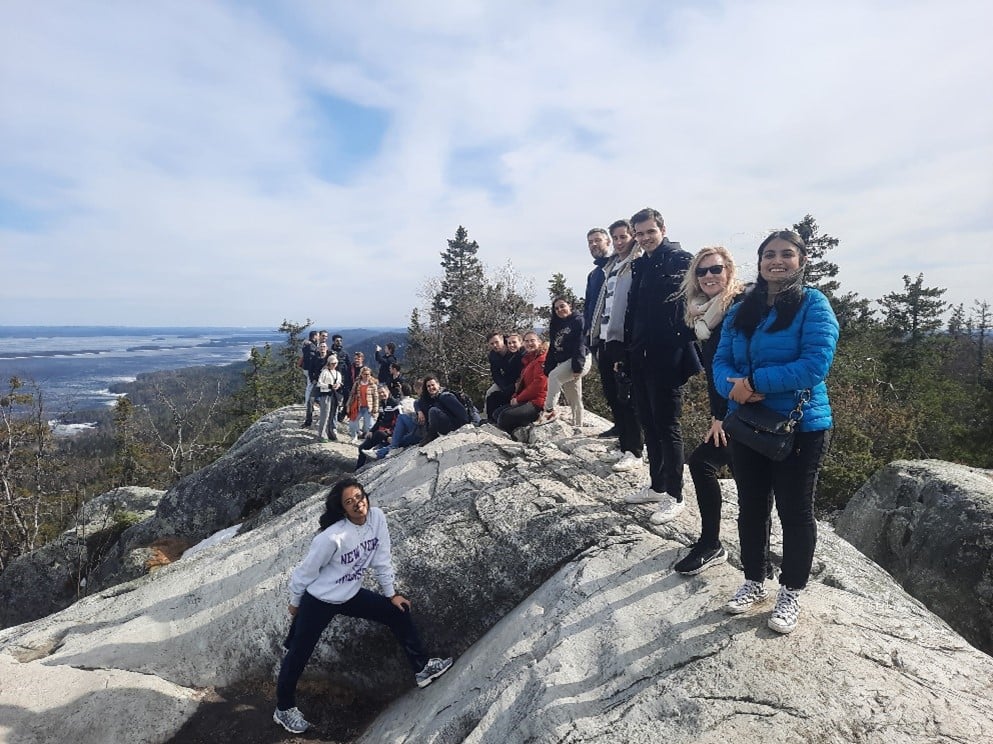
During the last evening we wanted to offer a very Finnish experience for our guests. We started the evening with the instructors from Joen Liitokiekko, who gave us an introduction to Disc golf. This is one of the rising sports in Finland and other Nordic countries in terms of popularity and number of facilities (disc golf courses). The students learned the idea very quickly and were able to continue from the practice field to the actual disc golf course to play.
After the sports we continued our evening in Jokiasema for dinner and sauna. After sauna we also played a typical Finnish summer game Mölkky to find the Mölkky champions of the week! And of course, we had to taste some sausages after sauna while enjoying another beautiful sunset over Lake Pyhäselkä.
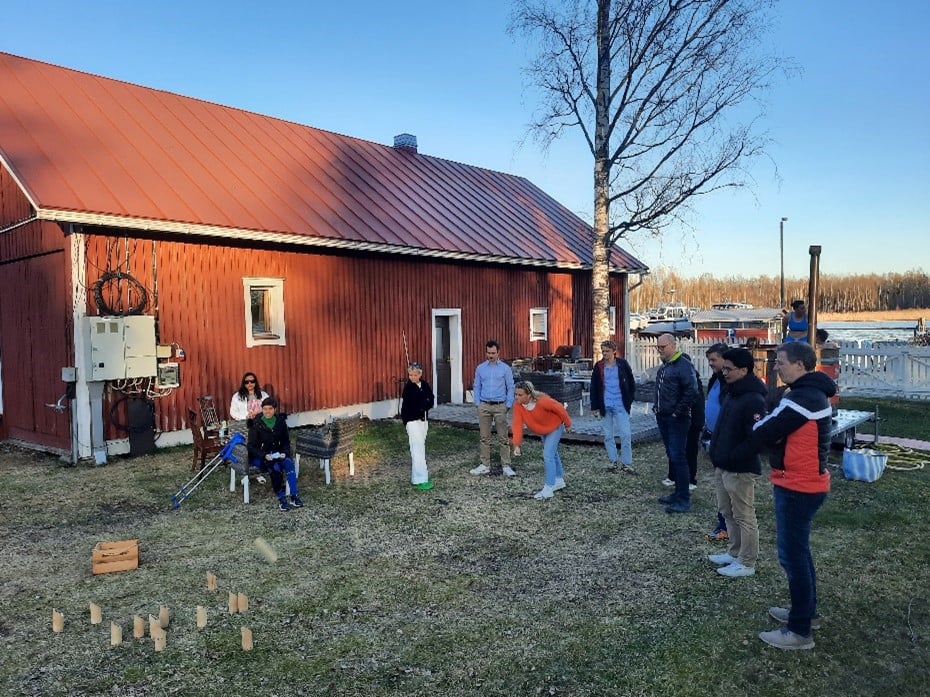
The intensive study week was a wonderful experience. It was great to follow how new friendships were born! From the students’ feedback we were able to see how they enjoyed the week and they considered this international spring school a great way to learn to work in intercultural teams and network with other business students around Europe. Next year we are going to continue our journey in learning from the champions, and will organise the Hidden Business Champion Spring school in Belgium.
References:
Business Joensuu (2023). Forest bioeconomy. https://businessjoensuu.fi/en/investments-and-relocation-investment-opportunities-in-joensuu-forest-bioeconomy. 23.5.2023.
Metsäkeskus (2023). Pohjois-Karjalan metsäohjelma 2021-2025. Metsäkeskus. https://www.metsakeskus.fi/sites/default/files/document/alueellinen-metsaohjelma-pohjois-karjala-2021-2025.pdf. 23.5.2023.
Authors:
Jarno Mertanen, Lecturer, Karelia University of Applied Sciences
Varpumaria Jeskanen, Lecturer, Karelia University of Applied Sciences
